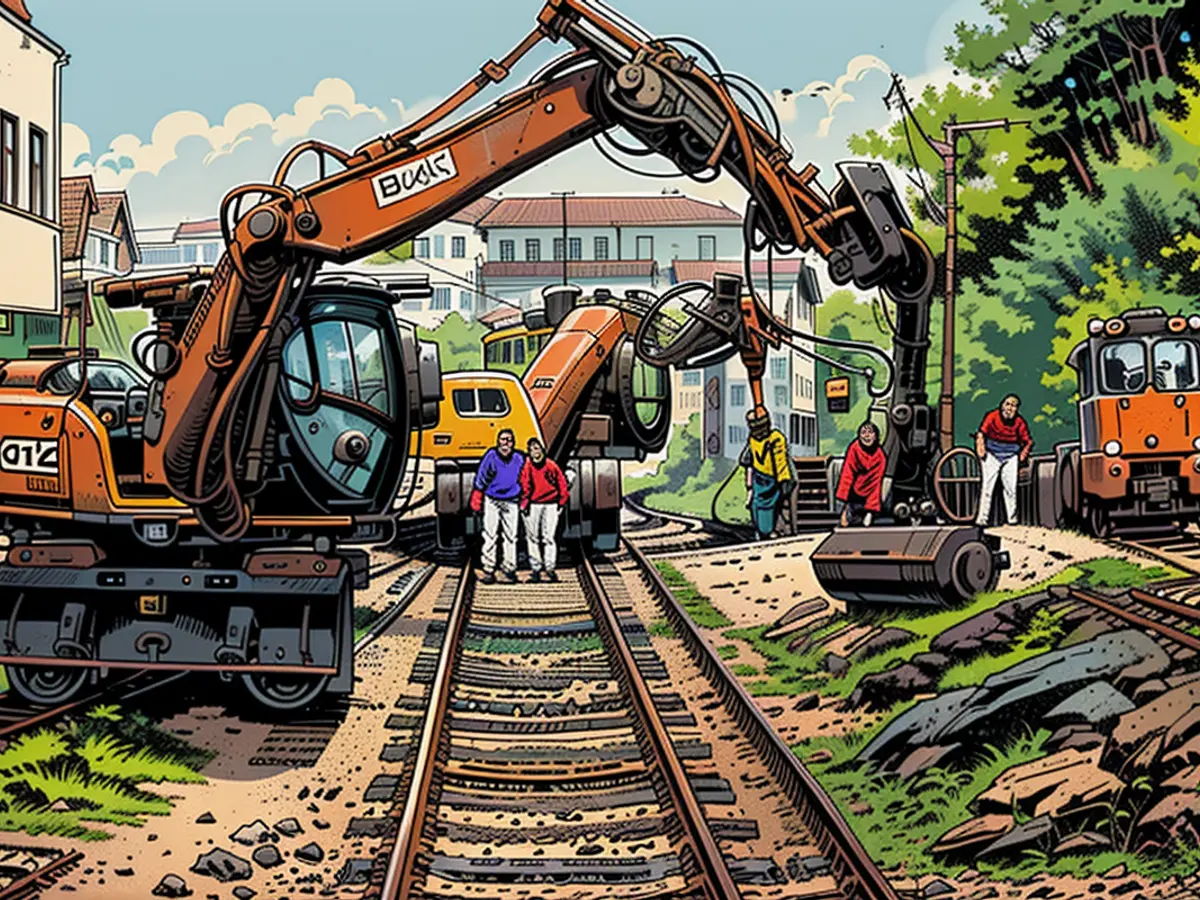Federal government investing more money into rail network
The railway infrastructure is more than run-down. Billions of Euro are needed for maintenance. The investments are higher than in the past, but still too low. However, the federal government is now adding a little more money, according to Allianz Pro Schiene.
In Germany, per capita investments in the rail network have barely increased in the past year - and the trend is also rising. The lobby group Allianz Pro Schiene shared this information in Berlin based on their own analysis. The year 2023 has not yet brought the long-awaited breakthrough, said Andreas Geißler, Transport Policy Leader at Allianz Pro Schiene. In 2023, per capita investments were 115 Euro - in 2022 they were 114 Euro.
"From the current year 2024, the commitment from the coalition agreement to invest significantly more in the rail than in the road will be implemented," said Geißler. This was also the case in the years 2022 and 2023, and the gap between rail investments and road investments will increase this year.
Allianz Pro Schiene has been calculating annual per capita investments in railway infrastructure for Germany and numerous other countries since 2005. Since 2014, there has been a steady increase in investments in Germany. In 2021, per capita investments in the rail infrastructure in Germany reached a record high of 124 Euro - however, this included an equity increase for Deutsche Bahn. In 2014, per capita investments in the rail infrastructure in Germany were still at 49 Euro. The rough target for the next two to three years, given last year, is 150 Euro per capita.
Despite the federal government's recent contributions, German Railways still requires substantial investments in infrastructure to meet its needs. The lobby group Allianz Pro Schiene emphasizes the importance of significant investments in railways compared to roads, as outlined in the coalition agreement.








